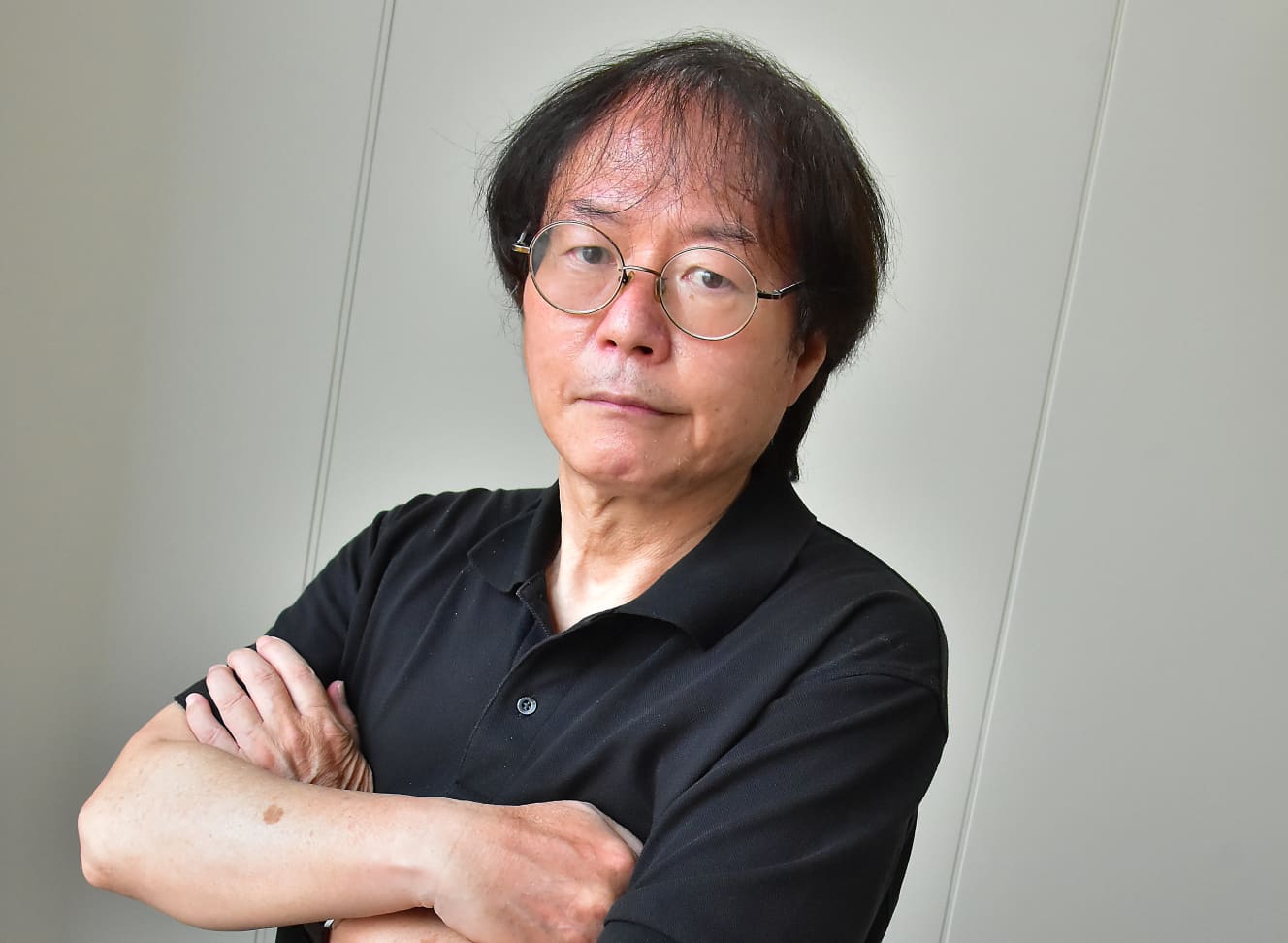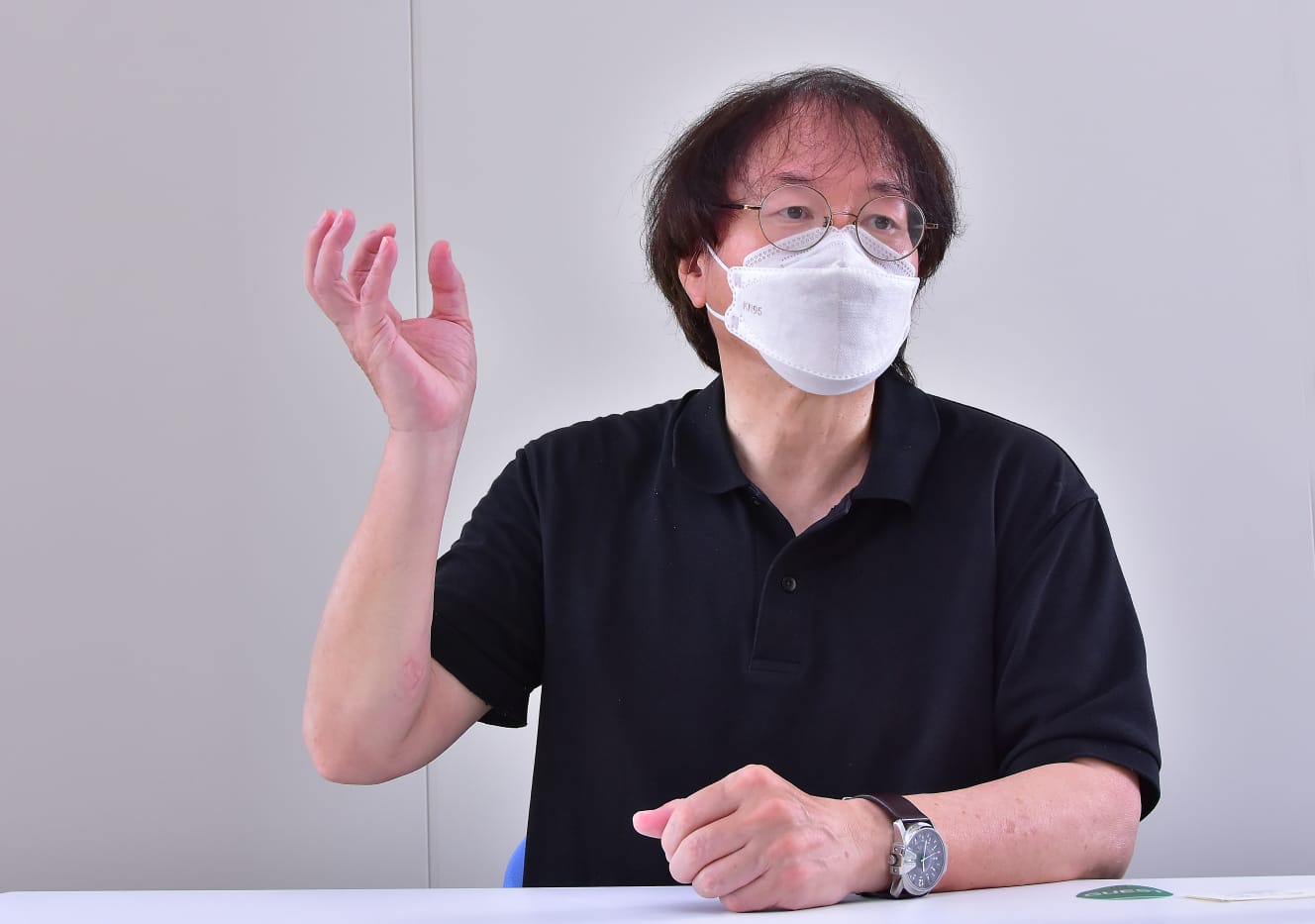Tanaka Keroring Anna reveals “The Essence of Life Learned from Inoki-ism
I wanted to ask him to step into the ring of the packed Tokyo Dome one more time and call out Mr. Inoki’s name. When I met him in March of this year, he seemed to be in good health, so I was thinking that this would be a good opportunity to have him in the ring. Now that dream is gone forever. I can’t help but feel disappointed.”
Antonio Inoki, who transcended the boundaries of the pro wrestling world and continued to inspire the world, passed away at the age of 79. While all of Japan was saddened by the loss of the “burning fighting spirit,” there was another man here who felt the same loneliness as if the light that illuminated the center of the ring had suddenly gone out.
Ring announcer Hidekazu Tanaka, aka “Kero-chan. Tanaka, who has been watching Antonio Inoki closely for nearly 40 years since he joined New Japan Pro Wrestling, reveals his secret story with Inoki and his feelings toward him.

Hidekazu Tanaka was born on January 6, 1959. He joined New Japan Pro-Wrestling as an employee and made his debut as a ring announcer on August 22, 1980, at the George Takano vs. After leaving New Japan Pro-Wrestling in 2006, he became a freelance announcer, and his beautiful voice still resonates at many organizations and events.
Mr. Inoki thinks this far: ……
I still remember the day I was first given the opportunity to address Mr. Inoki firmly, in the waiting room of the Shinagawa Prince Hotel Gold Hall on August 22, 1980. In pro-wrestling parlance, August 22 was the turning point in my destiny.
I had always been a pro wrestling fan, and when I heard that New Japan Pro-Wrestling was looking for a ring announcer, I went to New Japan Pro-Wrestling with my resume. I was fortunate enough to become a ring announcer, and made my debut on August 22 in a match between George Takano and Makoto Arakawa. On the day of my debut, I was escorted by Mr. Hisashi Shinma (who had held important positions in New Japan) to Mr. Inoki’s waiting room to say hello.
Oh, good luck.”
It was only one word, but I will never forget it when I reported my debut as a ring announcer to Mr. Inoki. It is the word that became my starting point, so to speak. I was a little surprised to see Inoki’s face and eyes, which were bigger than I had imagined (laugh).
Since then, I have been a ring announcer until today. I have called Mr. Inoki’s name many times, but I have never been told to “change my methods” or “that’s not good enough.
Rather, he told us to do new things and things that would be interesting to the audience, which is the Inoki way. Until then, it had been customary in the industry to use “pounds” when reading out a fighter’s weight, but I thought that would be difficult for Japanese fans to understand, so I changed the term to “kilos. I changed it to “kilo” because I thought that would be difficult for the Japanese fans to understand. I changed it to “Kilo” because I thought it would be difficult to convey the message to Japanese fans.
I also added a short preface when I called out the names of the players to liven things up for the audience. One of the criteria was whether the audience was happy or not, and fortunately, this kind of performance was well received, so he must have approved of what I was doing.
Yes, Mr. Inoki was always looking for new stimulation. I think he thought that if a culture or phenomenon got into a rut, it would end.
For example, when I went on regional tours, he often took me out to eat with him, where I was often asked for my opinion on the fight cards. I was an employee. I was an employee, so I didn’t have the authority to make decisions, but I guess he was trying to keep the cards from getting boring, so he would ask me, “Hey, about this card today, who do you think the fans would like if you played against who? He asked me, “Hey, this card today, who do you think the fans would like to see fight who?
Since Mr. Inoki was asking me this question, I answered seriously. I don’t know if my answer was reflected in the card, but it made me realize that he is always thinking of new things.
If there is someone at the top who makes you think, “Whatever I say to this person is not good enough,” the organization will not change. I thought to myself, “Mr. Inoki is asking for new things, so I should think of more things too. I believe that New Japan Pro-Wrestling has continued to grow because it was an organization in which everyone at the bottom thought in this way.
Speaking of regional tours, Mr. Inoki did not neglect to interact with his fans on his tours. Whenever he went on a tour, local children would come to the inns and hotels where he was staying with autographs, wondering where he got them. Mr. Inoki had a match that day, and he would say to the children, “Write your names on the back of the colored paper and come back here tomorrow.
Then, no matter how late he came home that day, Mr. Inoki would write his autograph for the children in his own handwriting. While some wrestlers had their juniors or staff members write their autographs for them, this was not an easy thing to do. I will never forget the smiles on the children’s faces when they received his autograph the next morning.
Mr. Inoki always remained “Antonio Inoki” in front of his fans, but sometimes he showed us the face of “Kanji Inoki, the man.
This was the night of the so-called “Ryogoku Riot”.
(Note: Ryogoku Riot) On December 27, 1987, a single match had been arranged at Ryogoku Kokugikan for Riki Choshu to challenge Antonio Inoki, but the “Takeshi Pro Wrestling Legion” led by Beat Takeshi demanded Inoki to face Big Bang Vader, the Legion’s assassin. Inoki announced that he would accept the challenge, causing discontent to swirl in the hall, especially among fans who had bought tickets in anticipation of the Inoki-Choshu match. After a few more developments, Inoki faced Vader, but lost in less than three minutes, and the fans’ anger turned into a riot. (Even though ring announcer Tanaka got down on his knees in the ring, the crowd’s anger did not subside, and parts of the seating area were vandalized, creating a social problem.)
After that match, I literally crawled home, and right after that I received a phone call from Mr. Inoki’s manager saying, “The chairman (Inoki) wants to have a drink with Mr. Tanaka. I do not know what his intentions were. Maybe he was trying to console me after I bowed down in the ring. Anyway, I flew to Mr. Inoki’s house, and while he was drinking, he let slip, “Kero, no one wants to start a riot. Oh, I remember I was so upset that for the first time Mr. Inoki said what he really thought in front of me …….
That fight was another example of Mr. Inoki’s various attempts to entertain his fans. However, unusually, the fans did not understand his intentions. That must have been a shock to Mr. Inoki.
Still, that was a great challenge. When you constantly challenge new things, it is natural that there will be a halt somewhere. But Mr. Inoki did not try to stop his steps there. Just like the poem he read at the time of his retirement, he went forward without hesitation and without fear. To be continued”, always continuing the story, was the driving force of Mr. Inoki and the source of our energy.
The period has finally come to an end to that series of stories. Of course, I am sad. I am sad.
But I also think this way. Having kept Mr. Inoki close by my side, Inoki-ism has taken root in me.
To always think of new things.
Always keep taking action.
Always make the people in front of you happy.
Never live according to a schedule.
Inoki-ism lives on in me. I believe that this ism has taken root not only among wrestlers but also among Inoki fans. I will not let this “ism” die out, but pass it on to the next generation. I think that is what we can do after Mr. Inoki’s death.
We cannot remain in sorrow. I myself will continue to take on new challenges in order to spread Inoki-ism.
Photo: Takeshi Kinugawa
